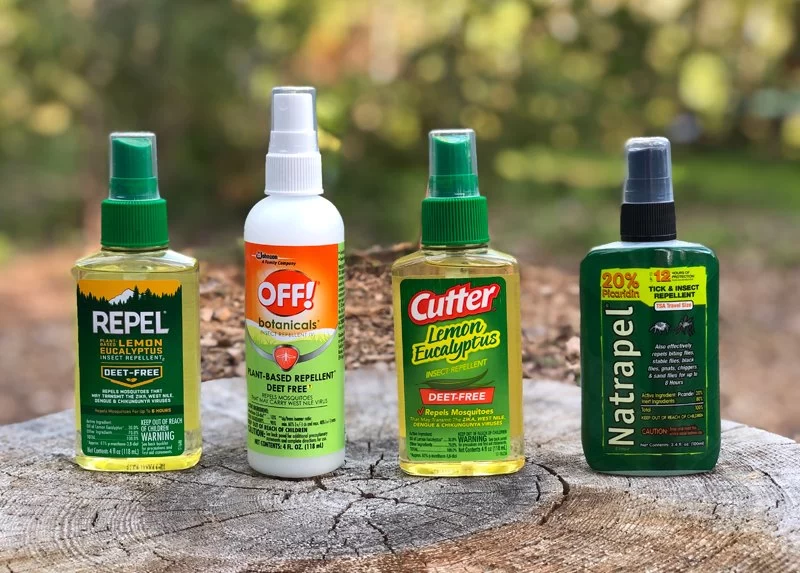What Is the Best Body Spray Against Insects?
- #Understanding-what-makes-a-body-spray-effective-against-insects
- #Comparing-common-repellent-ingredients-and-their-real-performance
- #Stories-from-travelers-and-hikers-using-insect-body-sprays
- #How-to-choose-the-right-body-spray-for-your-environment
- #Expert-guidance-and-product-recommendation-support-from-Scent-Snob
Understanding What Makes a Body Spray Effective Against Insects
When people ask, “what is best body spray against insects?” they’re often looking for something that can handle mosquitoes, ticks, gnats, or biting flies—without leaving skin sticky or smelling harsh. The best insect-repellent body sprays combine proven active ingredients, skin-safe formulas, and long-lasting protection.
For the U.S. market, effectiveness depends on both the ingredient concentration and your environment. A body spray that works perfectly in a suburban backyard may not be strong enough for a deep-woods camping trip or a humid lakeside environment.
1. The Importance of Active Ingredients
Most high-performing insect sprays include one of three main ingredients: DEET, picaridin, or oil of lemon eucalyptus. Each one has strengths depending on the type of insects you’re targeting.
2. Skin Comfort and Wearability
Today’s body sprays are designed to feel lighter, smell fresher, and blend better with your skin chemistry. Many people want protection without the heavy “chemical” scent, which is why more hybrid formulas are gaining popularity.
Comparing Common Repellent Ingredients and Their Real Performance
To understand what is best body spray against insects, it helps to know how each ingredient behaves in real-world situations. No single formula is perfect for everyone, which is why both conventional and natural options exist.
1. DEET: Maximum Strength for Tough Conditions
DEET is the long-standing gold standard for repelling mosquitoes and ticks. Higher concentrations (20–30%) work well for camping, hiking, and humid environments. Though it has a recognizable scent, its reliability is why outdoors enthusiasts trust it.
2. Picaridin: Effective, Odor-Light, and Skin-Friendly
Picaridin has become a U.S. favorite because it provides strong protection with a softer scent profile. It’s comfortable on skin, doesn’t damage fabrics, and keeps away mosquitoes, flies, and ticks. Many travelers prefer it because it feels more wearable for daily use.
3. Oil of Lemon Eucalyptus: Natural Yet Potent
For those who avoid synthetics, oil of lemon eucalyptus offers strong mosquito protection. It has a fresh, herbal scent but may need more frequent reapplication. It’s ideal for people who want natural ingredients without losing effectiveness.
4. Botanical Blends: Light Protection for Everyday Situations
Sprays with citronella, peppermint, or rosemary can deter insects in low-risk environments such as patios or parks. These are not substitutes for DEET or picaridin when mosquitoes are aggressive, but they’re appealing for light use.
Stories from Travelers and Hikers Using Insect Body Sprays
Real experiences reveal how protective sprays perform beyond lab tests. One camper from Colorado shared how a picaridin-based spray kept her bite-free during a multi-day mountain trip when her friends using natural sprays struggled.
Another traveler described a humid summer evening in Florida where a DEET spray was the only thing that stopped relentless mosquitoes during a long fishing session. His story is a reminder that the “best” spray often depends on the region.
On the other hand, a family in California reported that they prefer botanical blends because they spend time in low-mosquito coastal areas, and the kids enjoy the fresh smell. These differing stories prove that understanding your environment matters as much as choosing the ingredient.
How to Choose the Right Body Spray for Your Environment
To decide what is best body spray against insects for your lifestyle, consider the intensity of the insects you face, your scent sensitivity, and your outdoor activities.
1. Heavy-Bug Areas
If you're camping in forests, wetlands, or the Southeast, stronger ingredients like 20–30% DEET or 20% picaridin work best. They offer lasting coverage and are trusted for long-duration protection.
2. Everyday Outdoor Use
For backyard barbecues, daily walks, or quick errands, lighter picaridin sprays or natural formulas offer comfort without feeling overly medicinal.
3. Skin and Scent Preferences
Some people can’t tolerate strong-smelling formulas. In this case, picaridin is often the ideal compromise, offering strength without an overwhelming aroma.
Expert Guidance and Product Recommendation Support from Scent Snob
Because insect-repellent sprays vary widely—from scent intensity to skin feel to environmental performance—many shoppers prefer guidance before choosing the right one. Scent Snob specializes in helping users discover products that match both functional needs and personal preferences.
Whether you’re a frequent hiker, a backyard gardener, a traveler, or someone simply looking for dependable daily protection, understanding what is best body spray against insects empowers you to stay comfortable and bite-free. With expert insights and product breakdowns, Scent Snob helps you find the perfect balance of protection, scent, and comfort.


0 comments